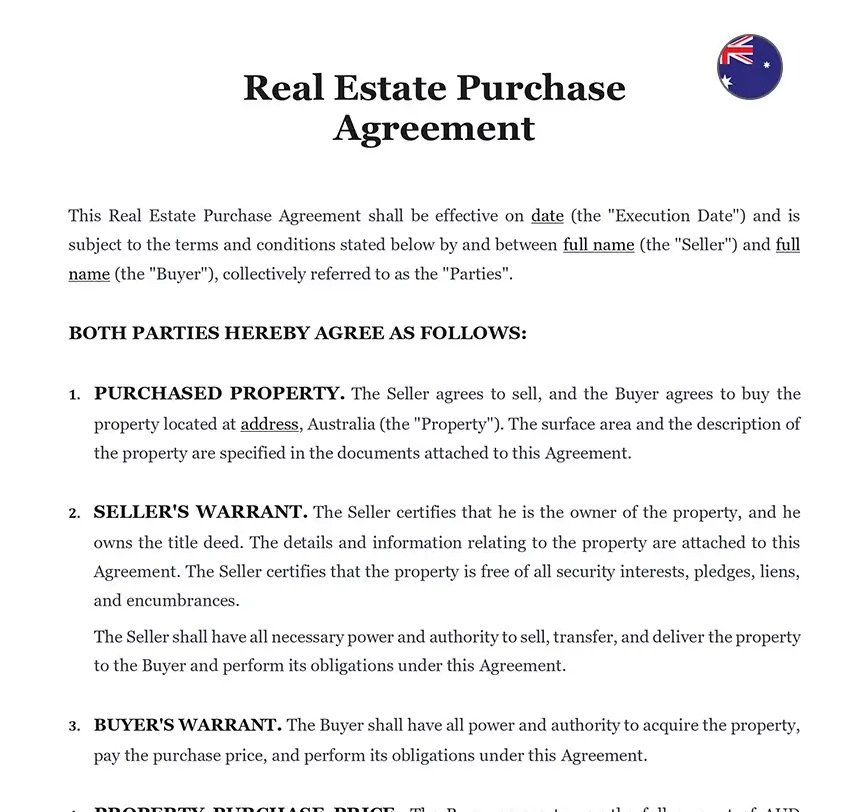Understanding the Legal Process of Buying Home
Purchasing real estate in Australia can be a rewarding investment, but it requires careful attention to the legal aspects involved. This comprehensive guide will walk you through the critical steps and considerations in buying property, emphasizing the importance of the real estate purchase agreement.
Preliminary Research and Planning
Before diving into the property market, it’s essential to conduct thorough research and planning. Understand the current market trends, property values in different areas, and the type of property that best suits your needs. This stage is crucial for setting realistic expectations and preparing a budget.
1. Market Trends: Stay updated on property prices, market fluctuations, and economic indicators that could affect the real estate market. Consider subscribing to real estate journals, online forums, and attending local property seminars.
2. Budgeting: Determine your financial capacity, including mortgage options and additional costs like stamp duty, legal fees, inspection costs, and ongoing property maintenance. Create a detailed budget plan that accounts for all these expenses.
3. Property Type: Decide whether you want a residential, commercial, or investment property. Each type has its unique considerations, such as rental yield, capital growth potential, and tax implications.
Choosing the Right Property
Once you have a clear understanding of your requirements and budget, start searching for properties. Consider factors such as location, property size, amenities, and potential for future growth. Engaging a real estate agent can be beneficial in finding properties that meet your criteria.
1. Location: Proximity to schools, public transport, healthcare facilities, and other amenities is crucial for both convenience and property value. Research the neighborhood’s future development plans to understand how the area might change over time.
2. Property Size: Ensure the property meets your space requirements for current and future needs. Consider the layout, number of rooms, outdoor space, and potential for extensions or renovations.
3. Growth Potential: Look for areas with potential for property value appreciation. This can be influenced by infrastructure developments, local economic growth, and population trends.
Legal Due Diligence
Conducting thorough legal due diligence is critical before making an offer. This involves verifying the property’s legal status, checking for any encumbrances or restrictions, and ensuring compliance with zoning laws and building regulations.
1. Title Search: Verify the legal ownership and ensure there are no outstanding claims or liens on the property. This step is crucial to confirm that the seller has the right to sell the property.
2. Zoning Laws: Ensure the property complies with local zoning regulations and can be used for your intended purpose. Different zones have specific rules regarding land use, building height, and density.
3. Building Regulations: Check if the property meets all building codes and standards. This includes ensuring the property is structurally sound, adheres to safety standards, and has all necessary permits for any past renovations.
Making an Offer
Once you have identified a suitable property and completed your due diligence, the next step is to make an offer. The offer should be made in writing and include the proposed purchase price and any conditions you wish to attach, such as financing approval or a satisfactory building inspection.
| ➤ Written Offer: Clearly outline the terms and conditions of your offer. This should include the offer price, deposit amount, settlement date, and any special conditions or contingencies. |
| ➤ Conditions: Include contingencies for financing, inspections, and other critical factors. Common conditions might be obtaining a satisfactory building inspection report, securing financing approval, or selling your current property. |











